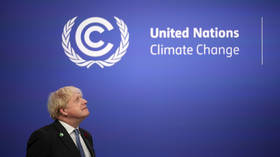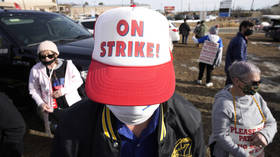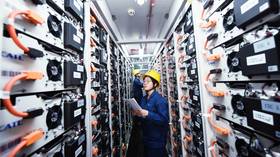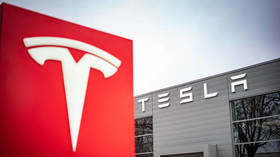The relentless pursuit of ‘net zero’ is what is causing the energy crisis

On Thursday, the Bank of England warned that Brits face the biggest decline in living standards in three decades over the next year. The reason is that just about everything is getting more expensive, but incomes will not rise anywhere near enough to match this surge of inflation. The Bank's governor, Andrew Bailey, even pleaded with workers not to demand big pay rises – in effect, to accept lower living standards. And central to the rising cost of living is the startling increase in the cost of energy.
Energy was bound to be more expensive as the world economy came out of hibernation after the pandemic. Demand has shot up, but production hasn't caught up. Moreover, the elephant in the room is China, whose demand for natural gas has rocketed. As historian Adam Tooze explains well in a recent article, China is now a ‘whale’ in the global economy. Policy changes in Beijing affect everyone around the world. China wants to shift from coal to natural gas to burnish its environmental credentials and reduce pollution, and that means there is an enormous new source of demand for gas. As Tooze notes: “As Europe is learning, if you rely on the global gas market, you are relying on a market increasingly driven by Chinese demand.”
But Europe’s environmental policies have left the continent on the back foot. The UK is comparatively fortunate in still having substantial supplies of natural gas from the North Sea, providing about 50 percent of domestic demand. Another big chunk of supply also comes from the North Sea, via Norway. But politicians have become obsessed with cutting greenhouse-gas emissions, so new sources of gas have been shunned in favour of more and more wind turbines.
That's okay when the wind is blowing, but as I write – on a fairly blustery day – wind is still providing just a third of the UK's electricity. Throw in solar and hydro power, and renewables are providing a little under half the nation’s juice. On many other windless, cold days recently, those turbines have provided little power at all and coal-fired power stations have been bought online – at huge expense – to fill the gap.
And that's just electricity, which makes up just a fifth of our energy usage. Homes are mostly heated with natural gas. Vehicles are overwhelmingly powered with petroleum. There's zero chance of low-carbon power replacing all that energy demand any time soon.
In the meantime, the development of the UK's potentially enormous shale gas reserves has been put on ice – banned in Scotland and Wales and under a moratorium in England since 2019. Estimates range from 2,800 to 40,000 billion cubic meters (bcm). The UK has been using a little under 80 bcm per year recently, so the lowest estimate of UK reserves would supply gas demand for 35 years. But since shale gas is extracted using hydraulic fracturing – ‘fracking’ – and can lead to minor earth tremors, campaigners, who are more interested in climate change than trivial earth movements, have managed to get shale gas shelved.
The UK government is also making it harder to develop new gas fields offshore. Last October, the government rejected Shell's plans to develop the Jackdaw gas field, east of Aberdeen, though there have been reports in recent weeks that Shell will try to submit a revised application. In December, it was reported that new fields would only get the go-ahead if they were compatible with meeting targets for ‘net zero’. Moreover, big oil and gas companies are increasingly worried about the reputational risk of new developments, happier to be seen as leading the way on renewables than on more reliable sources of energy.
Climate campaigners argue that developing new sources of fossil fuels is misguided because they wouldn’t add to the UK’s energy security or cut prices – the stuff would be sold on the world market instead. On top of that, they say, renewables like wind have meant we have less need to burn gas, oil, and coal, leaving us less exposed to world prices. It’s an odd thing to say that instead of relying on domestic energy sources, we should instead rely on liquified natural gas (LNG) from Qatar or America. And since when did supplying more of something that is in high demand do any harm in lowering the price? Even if the UK did export much of the extra gas, we would at least benefit from the tax revenue on it.
Long-term failings are also coming home to roost. Labour’s mealy-mouthed support for nuclear power meant the UK took too long to start building new power stations. The dim-witted Conservatives took an age to give the green light to Hinkley Point C, and chose EDF to develop it – even though EDF's European Pressurised Reactor (EPR) has never actually worked in Europe. (The Chinese have got two similar reactors working.) Hinkley Point C is currently slated to go online in 2026, if we're lucky, while older reactors are being decommissioned. So supplies of electricity from the one reliable, low-carbon alternative to renewables will actually decline in the coming years.
That’s just the supply side. The UK’s energy regulator, OFGEM, announced this week that the price cap for domestic supply would be raised to nearly £2,000 per year. But, according to OFGEM, ‘environmental/social obligation costs’ make up 15 percent of energy bills, amounting to £182 for an average household in 2020. These are set to keep going up as more pressure is put on to go green. To put that into perspective, measures put forward by the chancellor of the exchequer, Rishi Sunak, to ‘take the sting’ out of energy bills are a grant of £150 for most households, plus an additional £200 to be paid back from bills over the next five years.
Taking out those eco-charges would have been very helpful, especially as Sunak's measures only apply to domestic users. Businesses are feeling the brunt of energy price rises right now, whether it is heavy industry or the neighbourhood café. And let's not forget all those public-sector workplaces, like hospitals and schools, that will feel their budgets squeezed by higher bills, too.
Britain's energy crisis has been two decades in the making: rejecting fracking, coal, and (until too late) nuclear; over-reliance on renewables; spending too much time listening to eco-warriors and grandstanding about climate-change policies; and spending too little time worrying about cost and security of supply. All epitomised by the irrational drive to Net Zero by 2050. The result will be hardship for millions and it's happening right now.
The statements, views and opinions expressed in this column are solely those of the author and do not necessarily represent those of RT.

















